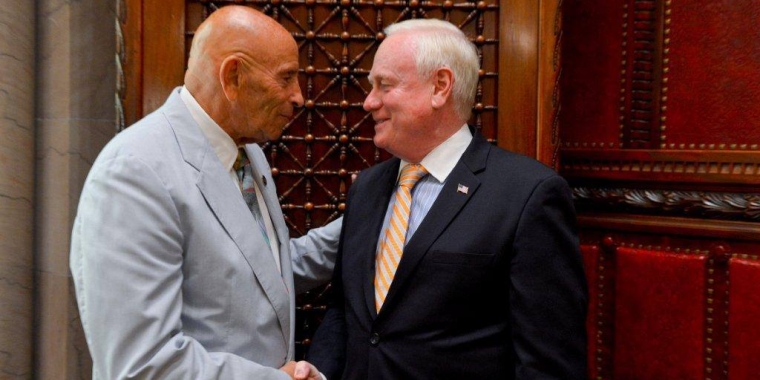
Senate Gives Final Passage to Bill to Protect Opwdd From Funding Cuts
Martin J. Golden
June 18, 2013

The New York State Senate today gave final passage to legislation (S4777D), sponsored by Senator Martin Golden (R-C, Brooklyn), that would protect providers of services for the developmentally disabled from state funding cuts.
The legislation would appropriate up to $90 million, or as much as is needed, to the Office for People with Developmental Disabilities (OPWDD) to protect providers from funding reductions if recommended savings measures falls short of projections.
“This approach to full restoration is responsible, cost effective and fair to the State and to people with developmental disabilities,” Senator Golden said. “Our programs, our services, and our group homes will be able to continue to serve New Yorkers with special needs, and we owe that to each and every one of them and their families.”
“This bill fulfills our promise to people with developmental disabilities and their families that we would do everything possible to protect them from cuts to service providers that they depend on every day,” Senate Majority Coalition Leader Dean Skelos said. “Senator Golden and Assemblyman Weisenberg deserve praise for their leadership in addressing this issue and speaking up for New York’s most vulnerable citizens.”
Senate Republicans strongly opposed the proposal in the Governor’s budget for $240 million in across-the-board funding cuts to OPWDD. The Senate’s budget resolution, passed in March, called for the full restoration of funding for OPWDD.
The final enacted state budget restored $60 million in state and federal funds to OPWDD. In addition, the budget created a workgroup that identified alternatives to minimize the impact of the cuts. The plan included using funds from Medicaid fraud recoveries, implementing less costly approaches to treatment, and ensuring that Medicaid is the payer of last resort.
Under the legislation passed today, should the savings fall short of the amount expected to be achieved from the workgroup, the state would transfer sufficient funds to OPWDD to make up for the shortfall. The Commissioner of OPWDD may also take into account greater efficiencies which do not diminish or impair services or the quality of care as reflected in the recommendations of the workgroup.
The bill will be sent to the Governor for his consideration.
Share this Article or Press Release
Newsroom
Go to NewsroomOCTOBER IS DOMESTIC VIOLENCE AWARENESS MONTH
October 1, 2015
Brooklyn’s Senior Idol Finals This Saturday
October 1, 2015
Weather Alert for Nyc - Hurricane Joaquin
September 30, 2015